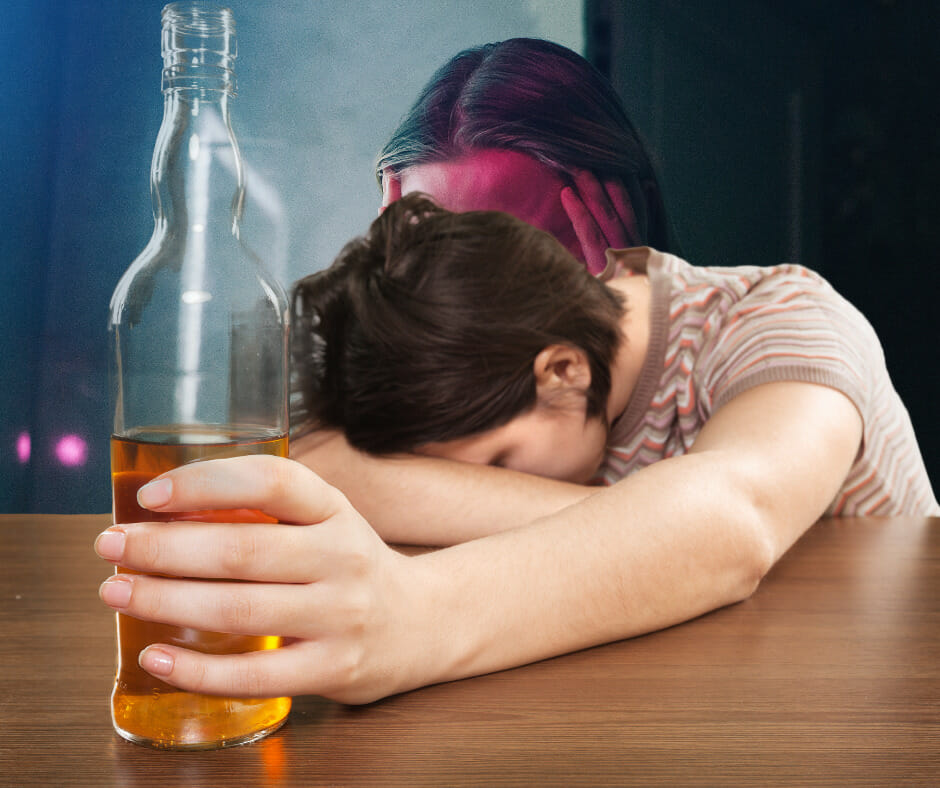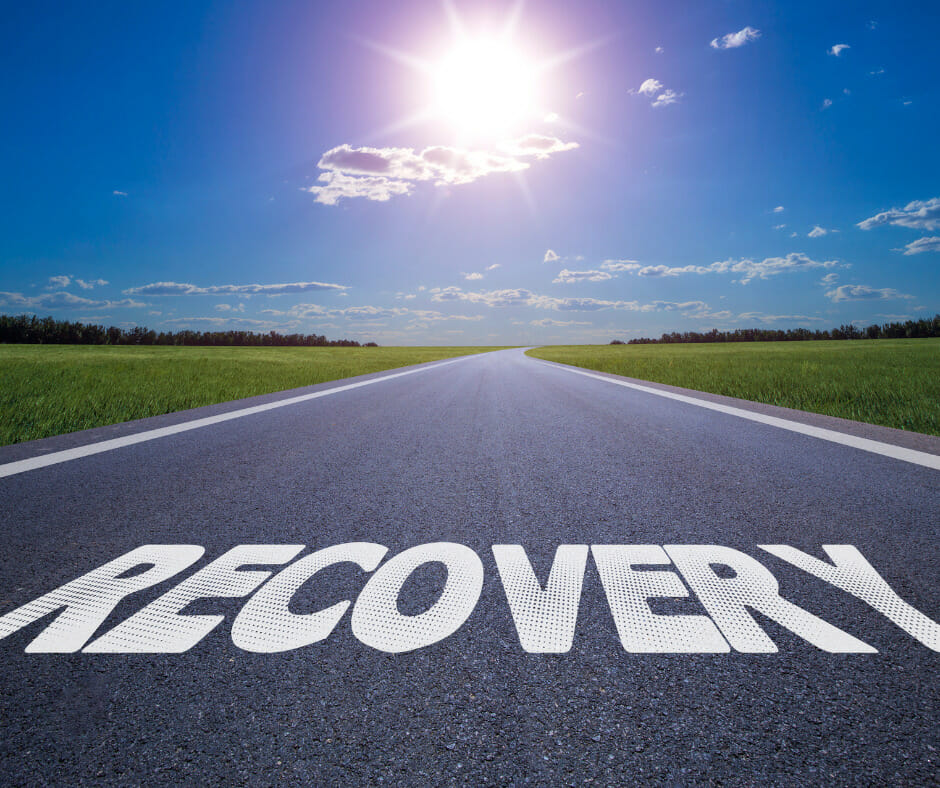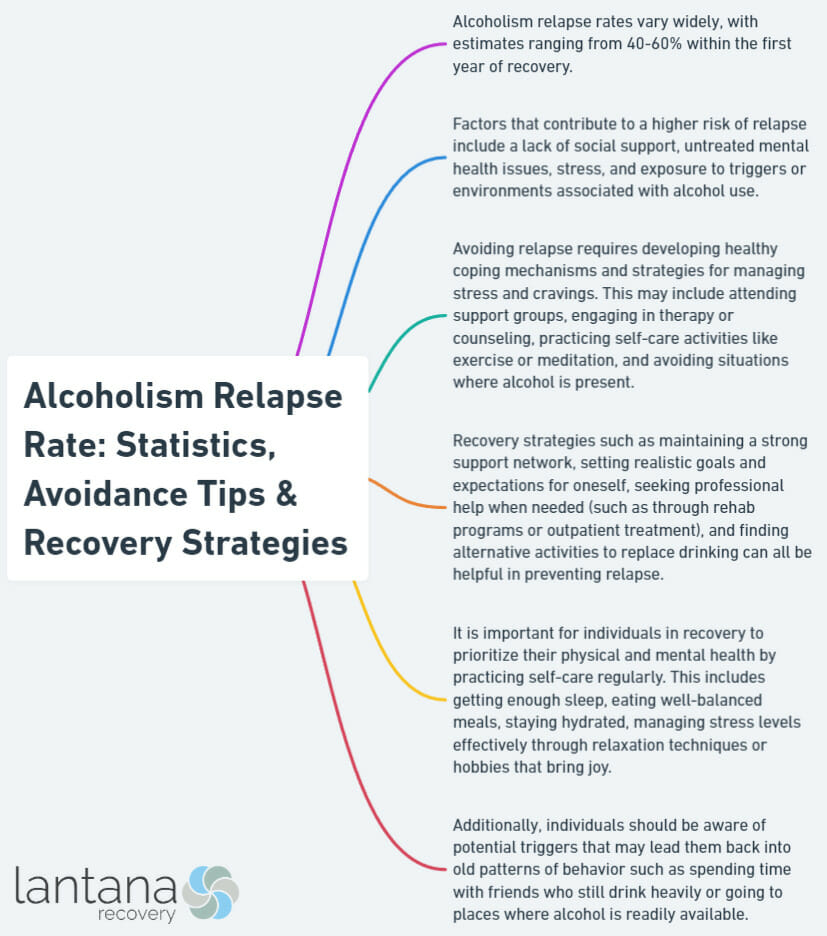Alcoholism remains a pressing issue, affecting countless individuals, families, and communities. For those on the path to recovery, alcohol relapse can pose a significant challenge, potentially derailing progress and causing further harm. With this in mind, understanding the factors that contribute to relapse and how to prevent it is crucial. In this blog post, we’ll delve into the intricacies of alcohol relapse, discussing its prevalence, the alcoholism relapse rate, triggers, and strategies for prevention, ultimately aiming to empower individuals to maintain and strengthen their sobriety.
Key Takeaways
- Understanding alcohol relapse rates is essential for supporting those in recovery.
- Treatment, triggers & warning signs, demographic trends and healthy coping mechanisms are all key elements to consider when addressing alcoholism.
- Developing a personalized relapse prevention plan and seeking professional help can help manage relapses and achieve long-term sobriety.
Understanding Alcoholism Relapse Rates

Alcoholism, a chronic medical condition, affects millions of people worldwide and requires professional intervention. Alcohol relapse, a consequence of alcohol abuse, can have a detrimental effect on individuals, families, and society, leading to physical and mental health issues, financial hardships, and social alienation. The dangers of drug abuse should not be overlooked, as it can exacerbate these issues further.
The most prevalent causes of alcohol relapse include post-acute withdrawal, peer influence, lack of access to a long-term support system, living at a distance of more than one hour from an alcohol treatment center, financial constraints, and living too far away from an alcohol treatment facility. To navigate the recovery process effectively, individuals must strive to prevent alcohol relapse by identifying their triggers and devising strategies to avoid them, such as creating a relapse prevention plan, constructing a solid support system, and utilizing healthy coping mechanisms.
Gaining insight into alcohol relapse statistics is beneficial for those battling alcohol use disorder and their support networks. By examining the factors influencing alcohol relapse rates and the role of treatment in reducing them, we can better equip ourselves with the knowledge to support those in recovery and provide them with the tools necessary for long-term success.
Factors Influencing Relapse Rates
Many factors contribute to alcohol relapse rates, such as:
- Genetics
- Environment
- Mental health
- Social support
Demographic and life history factors, drinking patterns, life context, and coping indices all play a role in short-term remission from alcohol use disorders. The presence of these factors can significantly impact one’s recovery process, determining the likelihood of relapse and the effectiveness of their coping strategies.
According to Marlatt & Gordon’s model of relapse, low self-efficacy, and ineffective coping skills are risk factors for relapse. Conversely, factors that contribute to long-term recovery include high self-efficacy, an emphasis on approach rather than avoidance coping, support from family and friends, and the presence of positive life events. Addressing these factors enables individuals to formulate a well-rounded strategy to avoid alcohol relapse and sustain sobriety.
The Role of Treatment in Reducing Relapse Rates
Professional substance abuse treatment from institutions like Lantana Recovery is paramount for individuals striving for sobriety and effective management of their alcoholism. Research shows that treatment for alcoholism is effective in the United States, helping individuals maintain sobriety. Outcomes for untreated individuals involved in randomized trials of alcohol treatment are generally inferior to those who receive treatment. This highlights the importance of professional intervention in reducing the risk of alcohol relapse.
Aftercare and supportive programs are essential in sustaining sobriety for recovering alcoholics. Building connections with healthcare professionals, therapists, and support groups can provide individuals with the guidance and motivation required to overcome addiction recovery challenges and sustain sobriety in the long term.
Alcohol Relapse Statistics: A Closer Look

Alcoholism, also known as alcohol addiction or alcohol dependence, is a chronic health condition comparable to other conditions such as diabetes or high blood pressure and is characterized by excessive alcohol consumption. Various types of relapses can be identified, such as short-term slips, lapses, chronic relapses, and longer-term relapses, including mental relapses.
An examination of alcohol relapse rates and trends is vital in enhancing our understanding of the recovery process and in formulating effective relapse prevention strategies. By delving into specific statistics related to alcohol relapse, we can gain valuable insights into the experiences of recovering alcoholics and identify potential risk factors that may contribute to relapse. Armed with this knowledge, we can provide targeted support and guidance to those in recovery, helping them maintain sobriety and achieve lasting success in their recovery journey.
Short-Term vs. Long-Term Relapse Rates
Short-term relapse rates are more substantial than long-term relapse rates, and emotional relapse can be a contributing factor. In a 2006 study by Moos & Moos, among people who had recovered at the three-year mark, those who drank more alcohol but didn’t view their drinking as a big issue, had lower self-confidence and used avoidance strategies were more prone to relapse by the 16-year point.
These statistics indicate that the likelihood of relapse decreases as sobriety is sustained following the initial recovery period. By recognizing the differences between short-term and long-term relapse rates, individuals in recovery can better understand the challenges they may face during the early stages of sobriety and develop strategies to mitigate the risk of relapse.
Demographic Trends in Alcohol Relapse
Age, gender, and other demographic characteristics may be associated with alcohol relapse rates. For example, 44.3% of the 461 individuals were more likely to be employed at baseline in comparison to the remaining 46 individuals, potentially influencing their alcohol relapse rates.
Understanding the demographic trends associated with alcohol relapse can provide valuable insights into the specific challenges different populations may face during their recovery journey. By examining these trends, we can develop targeted prevention strategies and support systems to address the unique needs of individuals in various demographic groups, ultimately promoting lasting sobriety.
Identifying Triggers and Warning Signs of Alcohol Relapse

Common triggers and warning signs of alcohol relapse may include:
- Stress
- Anxiety
- Depression
- Peer pressure
- Exposure to alcohol
Recognizing these triggers and warning signs is vital for recovering individuals, facilitating the development of strategies to manage and evade potential relapses. By recognizing and addressing these triggers, individuals can maintain sobriety and continue to make progress in their recovery journey.
Furthermore, neglecting one’s self-care and emotional well-being can lead to emotional relapse and increase the risk of alcohol relapse. Some triggers and warning signs of emotional relapse include:
- Unhealthy dietary patterns
- A shift from participating in social support networks to not revealing anything
- Concentrating on the issues of others instead of dealing with one’s own
By understanding these triggers and warning signs, individuals can take proactive steps to address potential risks and maintain their recovery progress.
Emotional and Mental Triggers
Emotional and mental triggers that can lead to alcohol relapse include stress, anxiety, and depression. Stress, in particular, has been shown to increase the risk of alcohol relapse by activating the same neural pathways associated with the brain’s reward system. It’s essential for individuals in recovery to develop healthy coping mechanisms to manage stress and other emotional triggers effectively, thus reducing the likelihood of relapse.
By understanding the emotional and mental triggers that can lead to alcohol relapse, individuals can develop strategies to address these challenges and prevent potential relapses. Some strategies to consider include:
- Seeking professional help, such as therapy or counseling from an institution like Lantana
- Engaging in stress-reducing activities, such as exercise or meditation
- Building a strong support network of friends and family
- Developing healthy coping mechanisms for dealing with stress and negative emotions
- Avoiding situations or environments that may trigger cravings or temptations
By addressing these triggers and developing effective coping strategies, individuals can maintain their sobriety and continue to make progress in their recovery journey.
Social and Environmental Triggers
Social and environmental triggers of alcohol relapse include:
- Social circumstances, such as parties or gatherings where others are consuming alcohol
- Environmental cues, such as bars or certain locations where the person has previously consumed alcohol
- Emotional triggers
These factors can all act as triggers for alcohol relapse. For instance, a study has found that “environmental stressors were related to low well-being which, in turn, was linked to both adolescent smoking and alcohol use” (Environmental Stressors and Alcohol Use, Brook et al., 2011.)
By being aware of these social and environmental triggers, individuals can take steps to avoid or minimize their exposure to these situations and maintain their sobriety. This may involve developing a strong support system, attending support group meetings, or seeking alternative social activities that do not involve alcohol.
By addressing these triggers and taking proactive steps to avoid them, individuals can maintain their recovery progress and prevent potential relapses.
Strategies for Preventing Alcohol Relapse

Preventing alcohol relapse is a fundamental aspect of the recovery process, with various strategies available for individuals to utilize in achieving this goal. Many studies have shown relapse rates of approximately 50% within the first 12 weeks after completion of intensive inpatient programs that often last 4 to 12 weeks or more and can cost tens of thousands of dollars. These strategies include developing a relapse prevention plan, building a strong support system, and incorporating healthy coping mechanisms. By implementing these strategies, individuals can maintain their sobriety and continue to make progress in their recovery journey.
Remain mindful that relapse prevention is a continuous process, necessitating unwavering effort and alertness. By regularly evaluating and adjusting their relapse prevention strategies, individuals can stay one step ahead of potential triggers and challenges, ensuring their long-term success in maintaining sobriety.
Developing a Relapse Prevention Plan
Formulating a relapse prevention plan is a key part of sustaining sobriety and reducing the risks tied to alcohol relapse. A relapse prevention plan is a written document or blueprint that assists individuals in recovery to recognize and minimize the risks associated with alcohol relapse. By constructing a personalized plan that addresses potential triggers and difficulties, individuals can develop a comprehensive approach to preventing alcohol relapse and maintaining sobriety.
To develop a relapse prevention plan, individuals should:
- Identify their personal triggers
- Develop coping strategies to avoid triggers
- Seek professional help, such as therapy
- Engage in stress-reducing activities, such as exercise or meditation
By addressing these triggers and developing effective coping strategies, individuals can maintain their sobriety and continue to make progress in their recovery journey.
Building a Strong Support System
Maintaining long-term sobriety heavily relies on a strong support system. By connecting with friends, family, and support groups, individuals can receive the guidance and encouragement necessary to navigate the challenges of addiction recovery and maintain long-term sobriety. Constructing a strong support system necessitates locating individuals who:
- are sympathetic and comprehend your recovery process
- are prepared to listen and offer emotional assistance
- are able to assist in keeping you accountable and provide tangible aid
To ensure a robust support system, it is essential to be candid and transparent with your support system, establish boundaries, and be ready to request assistance when necessary. Furthermore, it is imperative to reciprocate and demonstrate gratitude for the support received. By building a strong support system, individuals can maintain their sobriety and effectively navigate the challenges of addiction recovery.
Incorporating Healthy Coping Mechanisms

Incorporating healthy coping mechanisms can be an effective strategy for managing stress and emotions without resorting to alcohol. Some healthy coping mechanisms may include:
- Establishing and maintaining boundaries
- Utilizing relaxation strategies such as deep breathing
- Obtaining sufficient quality sleep
- Consuming a balanced diet
- Exercising regularly
- Engaging in creative activities
- Obtaining social support
- Practicing healthy communication
By incorporating these healthy coping mechanisms into their daily lives, individuals can reduce their reliance on alcohol as a means of managing stress and emotions. This, in turn, can help prevent alcohol relapse and support continued progress in the recovery journey.
Through a combination of relapse prevention planning, strong support systems, and healthy coping mechanisms, individuals can maintain their sobriety and achieve lasting success in their recovery journey.
Managing and Overcoming an Alcohol Relapse
An alcohol relapse can be a discouraging obstacle on the path to recovery. However, it’s important to recognize that relapse can be a part of the recovery process and can potentially reinforce someone’s commitment to sustained sobriety if it transpires and is managed appropriately.
By acknowledging the relapse, obtaining professional assistance, and reassessing and modifying the recovery plan, individuals can overcome the setback and continue to make progress in their recovery journey.
In the event of a relapse, it is essential to learn from the experience and use it as an opportunity to grow and strengthen one’s commitment to sobriety. By implementing the strategies discussed in this blog post, individuals can effectively manage and overcome alcohol relapse, ultimately achieving lasting success in their recovery journey.
Recognizing and Accepting the Relapse
Recognizing and embracing the relapse serves as an initial, vital step towards its management and eventual surmounting. By recognizing the relapse as part of the recovery journey and accepting responsibility for one’s actions, individuals can gain insight from their errors and take ownership of their recovery journey. This acceptance and acknowledgment can serve as a powerful motivator for individuals to recommit to their sobriety and learn from their mistakes.
Taking responsibility for one’s actions is essential, as it allows the individual to:
- Take ownership of their recovery journey
- Learn from their errors
- Cultivate a sense of self-efficacy
- Construct resilience in the face of future difficulties
- Maintain their sobriety
- Continue to make progress in their recovery journey
Seeking Professional Help

Reaching out for professional help can offer the requisite direction to effectively handle and advance post-relapse. Building connections with healthcare professionals, therapists, and support groups can provide individuals with the guidance and motivation required to overcome challenges in the addiction recovery process.
In addition, professional assistance can help you understand what relapse is and address the underlying issues that contributed to the physical relapse, such as stress, anxiety, or depression. To locate an appropriate professional, individuals should research the various types of professionals, request referrals from reliable sources, and evaluate the cost of services.
By seeking professional help, individuals can gain insight into their triggers and warning signs of relapse, construct a relapse prevention plan, and form a robust support system, ultimately achieving lasting success in their recovery journey.
Reevaluating and Adjusting the Recovery Plan
Following a recent relapse, reassessing and adjusting the current relapse prevention plan is critical. This may involve:
- Assessing the current progress and effectiveness of the recovery plan
- Identifying any areas that need improvement or adjustment
- Setting new goals or modifying existing goals based on the assessment
- Implementing the necessary changes to the recovery plan
Reevaluating and adjusting the recovery plan is an ongoing process, requiring consistent effort and vigilance. By regularly re-evaluating and adjusting their relapse prevention strategies, individuals can stay one step ahead of potential triggers and challenges, ensuring their long-term success in maintaining sobriety.

The Bottom Line
Throughout this blog post, we have explored the complexities of alcohol relapse, examining its prevalence, triggers, prevention strategies, and management techniques. By understanding the factors that contribute to relapse and developing effective strategies to address them, individuals can maintain their sobriety and achieve lasting success in their recovery journey. Remember, the road to recovery is not always a straight path, and setbacks may occur. However, with perseverance, support, and the right tools, individuals can overcome these challenges and continue to make progress in their journey to a healthier, alcohol-free life.
Frequently Asked Questions
What is the relapse rate for alcoholism?
Unfortunately, research shows that the relapse rate for alcoholism is quite high, more than 1 in 10 adults (27.5 million) in the U.S. reported ever having a substance use problem, and, among those with a problem, nearly 75 % (20.5 million) reported being in recovery.
What are the odds of staying sober?
This depends! A study has found that remitted individuals with no risk factors had a 22% likelihood of relapse. The likelihood of relapse rose to 45% for individuals with one risk factor, 70% for individuals with two risk factors, and 86% for individuals with three or four risk factors.
What are some common triggers of alcohol relapse?
Common triggers of alcohol relapse include stress, anxiety, depression, peer pressure, and exposure to alcohol.
How can I prevent alcohol relapse in my recovery journey?
Develop a relapse prevention plan, build a strong support system, and use healthy coping mechanisms to help prevent alcohol relapse in your recovery journey.









